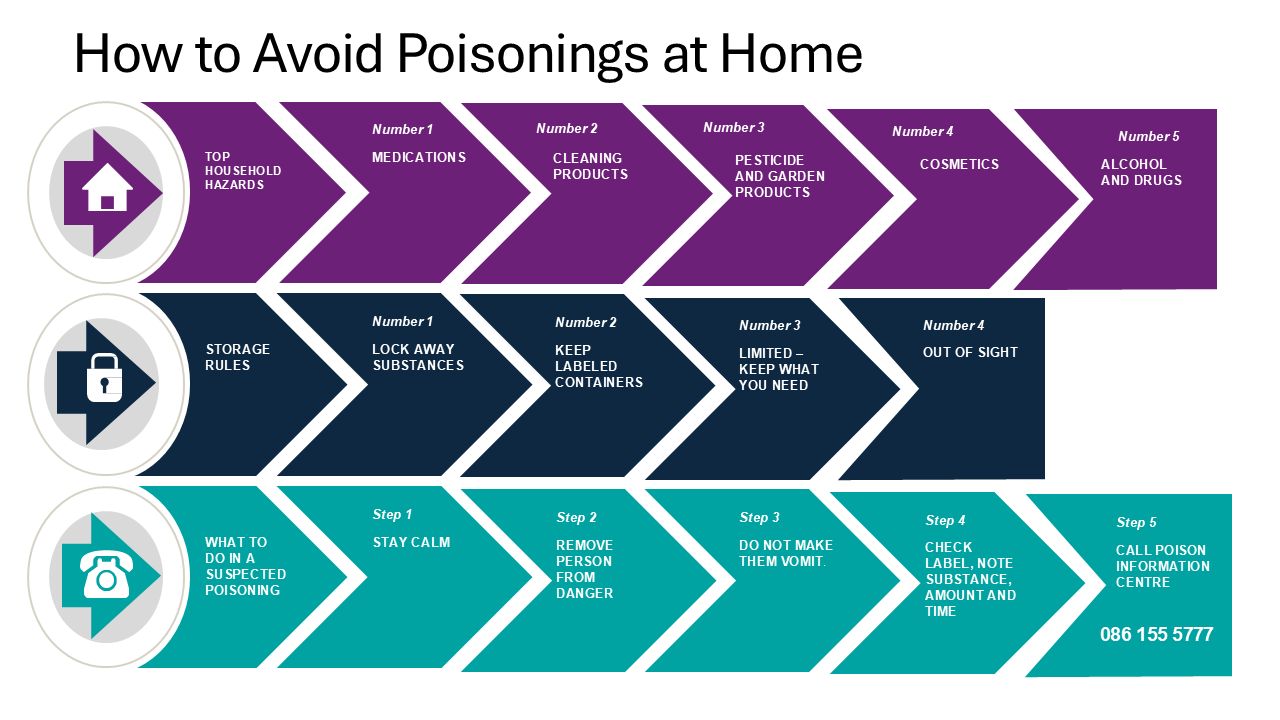LIFESTYLE NEWS - With school holidays in full swing, it’s more important than ever for parents to be vigilant about hidden dangers in everyday household products.
Recent statistics from the Poisons Information Helpline reveal a concerning trend: between 1 January and 31 June, there were 6,142 reported poisoning cases, with 514 linked to common household items such as bleach, detergents, air fresheners, and polishes.
The top household culprits include:
- Bleach – 148 cases
- General cleaners (dishwashing liquid, laundry detergent) – 123 cases
- Air fresheners and deodorisers – 54 cases
- Polishes (floor, car, shoe) – 30 cases
- Drain cleaners – 29 cases
Children are particularly at risk. Of the reported household product poisonings in the first half of 2025, 243 involved children under five.
Brightly packaged and scented products can entice curious young minds, increasing the risk of accidental ingestion.
Cindy-Lee Golding, a specialist at the Tygerberg Poisons Information Centre, emphasises: "Many poisoning incidents occur not from neglect, but from everyday accidents. A momentary lapse, such as leaving a bottle open or storing a cleaner within reach, can have serious consequences. Simple precautions, like locking chemicals away, using childproof caps, and educating children about the dangers, can save lives. Prevention is the most powerful protection we have."
According to ChildSafe, a non-profit organisation based at the Red Cross War Memorial Children’s Hospital, families should follow these safety tips:
- Store poisonous products out of sight and reach of children, preferably in a locked cupboard.
- Put poisonous substances away immediately after use.
- Remember that childproof containers are not 100% childproof.
- Administer medicines in a well-lit room, read instructions carefully, and follow the prescribed dose.
- Never refer to medicines as sweets or make them attractive to children.
- Avoid taking medicines in front of children, as they love to imitate adults.
- Do not share medicines or store them in handbags.
- Dispose of unnecessary medicines safely; unused medications can be returned to local clinics.
- Keep handbags containing cosmetics out of reach.
- Always leave chemicals and detergents in their original containers; never transfer them to drink bottles.
- Keep loose batteries and battery-powered devices away from children; place sticky tape over the battery case if necessary.
- Teach children about the dangers of eating anything from the garden.
- Be especially cautious when visiting other homes, as they may not have stored poisons safely.
The Tygerberg Poisons Information Centre urges families to securely store chemicals, avoid transferring cleaning products into drink containers, and maintain good ventilation while cleaning.
By staying vigilant and adopting these simple safety measures, households can significantly reduce the risk of accidental poisoning.
‘We bring you the latest Garden Route, Hessequa, Karoo news’

















